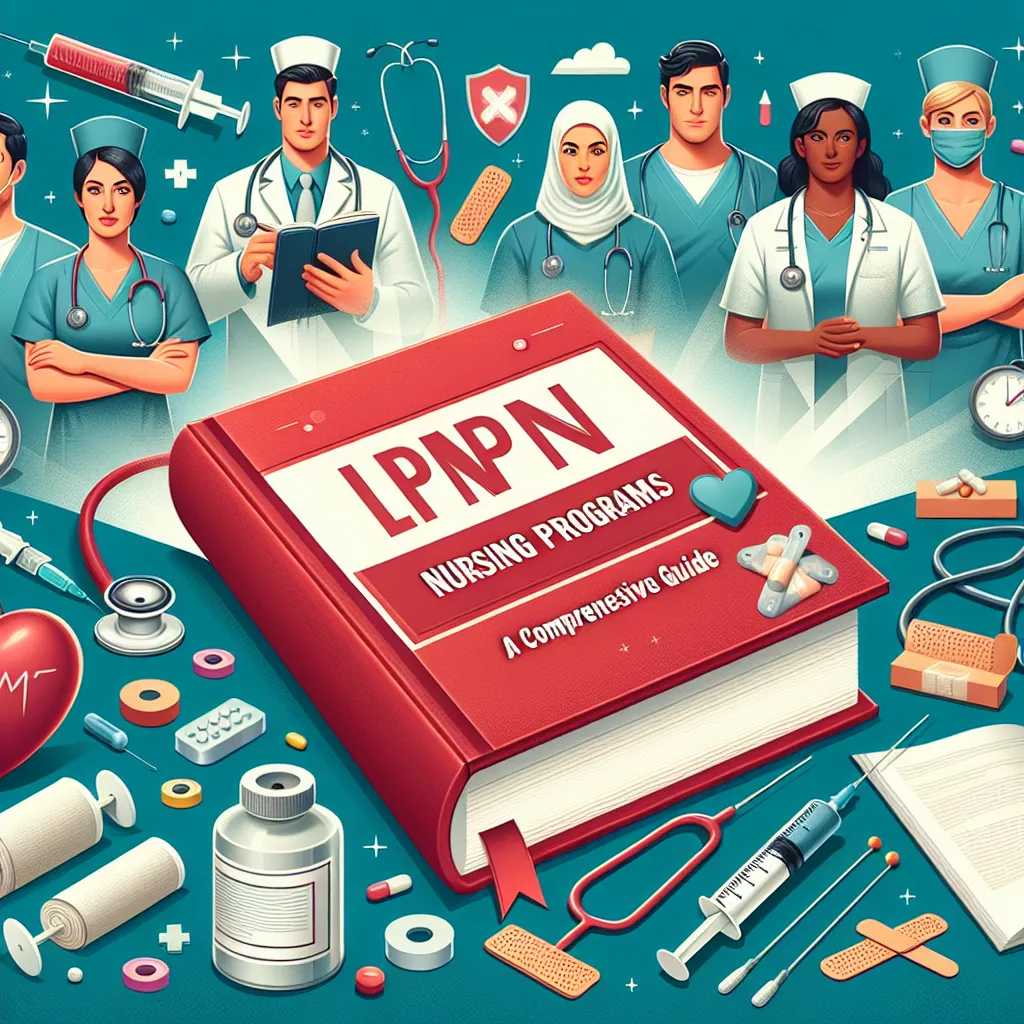LPN Nursing Programs: A Comprehensive Guide to Pursue Your Nursing Career
LPN Nursing Programs: A Comprehensive Guide to Pursue Your Nursing Career
Are you passionate about healthcare and interested in becoming a nurse? Pursuing a Licensed Practical Nurse (LPN)
career can be an excellent choice for you. LPNs play a crucial role in the healthcare industry, providing
essential patient care under the supervision of registered nurses or physicians. If you are looking to embark
on a rewarding nursing career, this comprehensive guide will walk you through everything you need to know about
LPN nursing programs, including the educational requirements, career prospects, and the steps to become an
LPN.
What is an LPN?
A Licensed Practical Nurse (LPN), also known as a Licensed Vocational Nurse (LVN) in some states, is a healthcare
professional who provides basic nursing care to patients. They work closely with registered nurses and other
healthcare professionals to deliver patient care, monitor vital signs, administer medications, and perform
routine procedures. LPNs can find employment opportunities in various healthcare settings such as hospitals,
long-term care facilities, clinics, and home healthcare.
LPN Education and Training
To become an LPN, you need to complete a state-approved LPN nursing program. These programs are typically offered
by community colleges, vocational schools, and some hospitals. LPN programs usually take around 12-18 months to
complete, depending on the institution and the program’s structure.
LPN programs cover a wide range of topics such as anatomy and physiology, pharmacology, medical-surgical nursing,
pediatric nursing, and geriatric nursing. The curriculum includes both classroom instruction and hands-on
clinical training to prepare students for the responsibilities and challenges of an LPN role.
LPN Program Admission Requirements
While specific admission requirements may vary between institutions, most LPN programs have some common
prerequisites. These may include:
- A high school diploma or GED equivalent
- Minimum GPA requirements
- Completion of prerequisite courses such as biology, chemistry, and math
- Passing a criminal background check and drug screening
- Letters of recommendation
- Personal statement or essay
Steps to Become an LPN
If you are aspiring to become an LPN, here are the general steps you need to follow:
-
Research LPN programs: Start by researching and identifying accredited LPN programs in your area. Consider
factors such as program length, cost, reputation, and available clinical opportunities. -
Meet admission requirements: Once you have shortlisted potential programs, make sure to meet their admission
requirements. This may involve taking prerequisite courses, submitting required documents, and meeting
minimum GPA requirements. -
Apply to LPN programs: Submit your applications to the selected LPN programs within their designated
application period. Pay attention to deadlines and ensure that you provide all required information and
documents. -
Complete the LPN program: Once accepted into an LPN program, attend classes, participate in clinical
rotations, and successfully complete all required coursework and exams. -
Pass the NCLEX-PN exam: After graduating from an LPN program, you need to pass the National Council Licensure
Examination for Practical Nurses (NCLEX-PN). This exam evaluates your knowledge and competency to practice as
an LPN. -
Obtain state licensure: Upon passing the NCLEX-PN exam, you will need to apply for LPN licensure in your
state. Each state has its own licensing requirements, so make sure to fulfill all the necessary
obligations. -
Begin your LPN career: Once you have obtained your LPN license, you can start applying for LPN positions and
kick-start your nursing career.
Career Prospects for LPNs
The demand for LPNs is expected to grow in the coming years due to an aging population and an increased emphasis
on preventive care. LPNs can find employment opportunities in various healthcare settings, including:
- Hospitals
- Nursing homes
- Rehabilitation centers
- Physician offices
- Home healthcare agencies
- Hospices
- Schools
- Correctional facilities
LPNs can also choose to specialize in specific areas such as pediatrics, geriatrics, or critical care. With
experience and further education, LPNs can advance their careers by becoming registered nurses (RNs) or pursuing
other advanced nursing roles.

Advantages of Pursuing an LPN Career
There are several advantages to pursuing an LPN career:
-
Shorter program duration: Compared to registered nurse (RN) programs, LPN programs have a shorter duration,
allowing you to enter the nursing field relatively quickly. -
Cost-effective: LPN programs are often more affordable than RN programs, making them a cost-effective option
for individuals looking to start a nursing career. -
Valuable experience: As an LPN, you gain hands-on experience and exposure to various nursing specialties,
which can be beneficial if you decide to pursue further nursing education. -
Job security: The demand for LPNs is projected to increase, ensuring job security and a wide range of
employment opportunities. -
Pathway to advancement: LPN roles can serve as a stepping stone towards further education and career
advancement in nursing.
Conclusion
LPN nursing programs provide an excellent opportunity for individuals interested in pursuing a nursing career.
With a relatively shorter duration and cost-effective options, LPN programs prepare students for a rewarding
career in healthcare. As an LPN, you can make a significant impact on patients’ lives and contribute to the
overall healthcare system. By following the necessary steps and meeting the program’s requirements, you can
embark on a fulfilling and meaningful nursing journey as an LPN.
